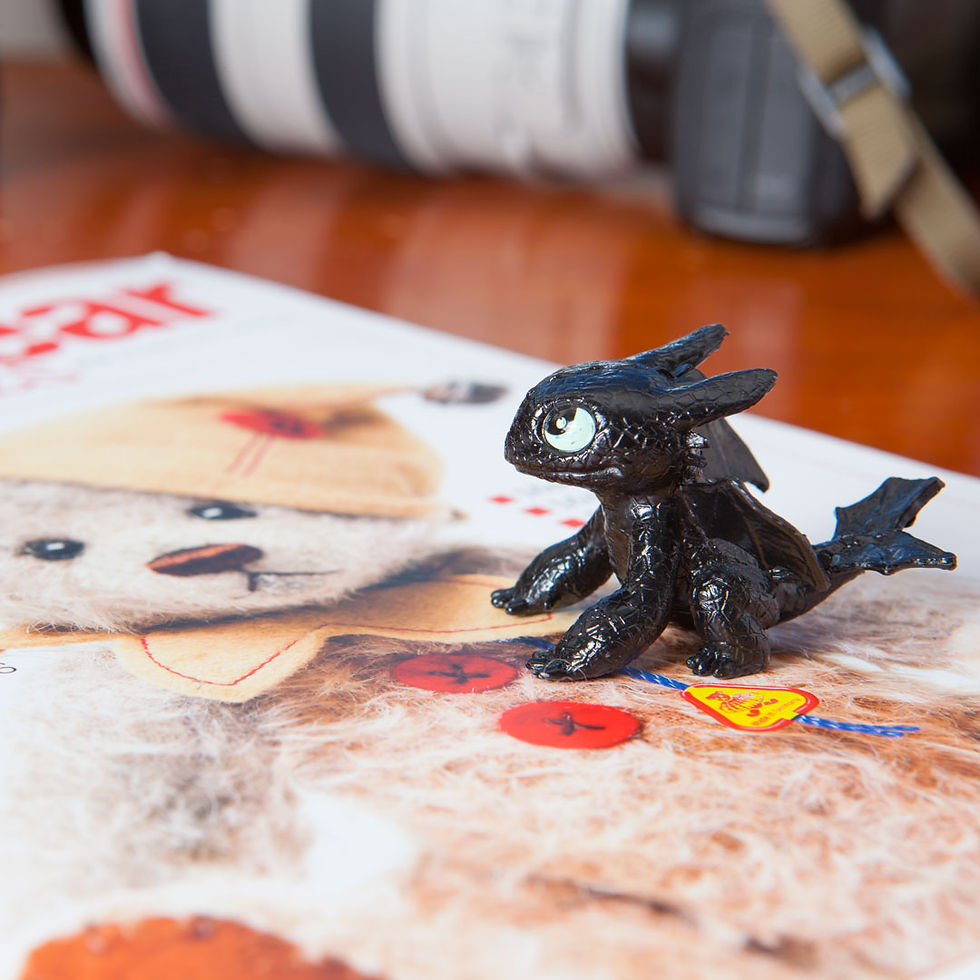- drago : 049365
- Aug 18, 2016
- 3 min read

Acknowledgement.
We all need it from time to time, whether we are flying solo or not. You may remember a few weeks ago, I posted some good news that made my day, when I learned that one of my favourite product images was being used as the front cover to an international magazine. Well the hard copy arrived in the mail today! When you work in a world where so many of our images are just seen in digital format, there is still something magic about actually seeing it in tangible print.
Acknowledgement by others brings with it a sense of validation and it can help to boost confidence. In today's world of social media we have become obsessed with external validation - the number of likes we get, the number of followers we have - however, we have also tended to put emphasis on the quantity rather than quality. I see time and time again, people who define their sense of self based on the "strength of their social media", and are influenced by the way in which others positively or negatively acknowledge them online. You only have to read a few articles and see the statistics related to the rise and consequences of cyber bullying. On the other hand there are concerns about the growing concern that our parenting, education and organisation systems are enabling the development of praise junkies.
In the mid 1950's, the psychologist Julian Rotter developed a concept called the Locus of Control of Reinforcement. This construct suggests that we all have a developed a system of preferences to focus on, or pay attention to a range of internal or external forces that we believe to cause our actions. It is also based on the premise that our subsequent behaviour is largely guided by reinforcement - rewards or punishments. For example if you have a belief system that is biased towards an internal locus of control, you will believe that the success or failure in your life directly attributed to your own behaviour and not largely influenced by the external circumstances. It is a "reap the benefits of what you sow" mentality. On the other hand, if you tend to pay more attention and give focus to external or environmental circumstances as contributing to your fortunes, you are more likely to feel that regardless of your behaviour the outcome is beyond your control. It is a "what is meant to be is meant to be" mentality. Where we sit on this external - internal spectrum can change depending on the facet of our lives, or our stage in life.
Success in solo flying, does require a strong internal locus of control. It requires a belief in oneself that you are being successful with or without the external acknowledgement. A strong sense of internal validation enables us to deal better with criticism and rejection, and when things go wrong a belief that we can actually do something about it to "control" the outcome. One of the dangers of lying solo with a overly strong internal locus of control though is that you can become blind sided, narrow minded and potentially reject the valuable input of others. You may appear ungrateful to others or to your circumstances that have supported your success. There have been times in my life when I was embarrassed by acknowledgement for my work, and would outrightly or minimise the credit given. Like with all things in life, it is finding that knife edge balance to navigate through each day.
I close today's post in gratitude. I know that I am inspired to work hard and with dedication to my craft to deliver great results to my customers. I also know that it is a unique set of very fortunate circumstances beyond my control that from time to time deliver gifts of acknowledgement. To all those that have supported me in direct and indirect ways, I acknowledge and thank you.
Flying Solo Tip 049365 : Acknowledgement, we all need it from time to time.






